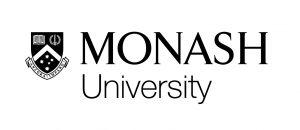
Posted: 23 November 2023
A newly funded Monash University-led research program will investigate the potential of Chimeric Antigen Receptor T (CAR T) cell therapy, previously only effective in blood cancers, for the treatment of prostate cancer.
Prostate cancer is the most commonly diagnosed cancer1 in Australia and remains a leading cause of death worldwide2. At present, there is no cure for advanced prostate cancer.
A multi-disciplinary and multi-institutional team of researchers has been awarded a $5 million Synergy Grant from the National Health and Medical Research Council (NHMRC) to develop highly-tailored treatment regimens for prostate cancer, using next-generation CAR T cell therapy.
NHMRC Synergy Grants support outstanding multidisciplinary teams of investigators to answer major questions that cannot be answered by a single investigator.
CAR T cell therapy uses the body’s own immune system T cells and has transformed treatment for some blood cancers. However, CAR T cell therapy could also be effective in solid cancers including prostate cancer, based on recent evidence published by members of the new Synergy team.
The Synergy Grant program will be led by Professor Gail Risbridger from Monash University’s Biomedicine Discovery Institute (BDI), Professor Phillip Darcy from Peter MacCallum Cancer Centre and Professor Paul Timpson from The Garvan Institute of Medical Research.
Professor Risbridger explained that the best evidence for the usefulness of CAR T cell therapy so far has been in blood cancers. She said that the importance of the team’s approach was the discovery that this therapy could be effective in attacking solid cancers when modulated with chemotherapy.
“This program has been long in the making, with a number of different strands of research only coming together now. For example, my colleague and co-chief investigator Professor Renea Taylor and I are not immunologists, we are cancer biologists with lifetime experience in researching prostate cancer, and working with cancer patients and consumer advocates,” Professor Risbridger said.
“So we are bringing together people with all the expertise we need, to get them closely aligned on this particular problem. We will be working with bioengineers including Monash University’s Associate Professor Daniela Loessner, cancer biologists, immunologists and clinicians including Professor Ian Davis to bring fresh perspectives to the issues, develop a unified approach, and speed up the development of CAR T treatment.
Monash BDI’s Professor Taylor, one of the chief investigators on the team, said, “We know that CAR T cells currently don’t work as well as they might on solid tumours because we’ve done our own clinical studies that highlighted a number of issues. These include how the tumour creates a microenvironment toxic to the attacking T cells, and how the CAR T cells themselves don’t move or stay in the right place as well as they could.”
The project is split into two parts. In the first part, the team will use a range of animal models and human cell samples in the laboratory to describe the changes in cells that happen in the tumour microenvironment (TME) that make it easier for T cells to enter tumours.
Professor Timpson explained that they would also improve their static snapshot data by using live imaging deep inside the tumour to see the effects of drugs in real-time. “This means we can follow the entry of T cells into living tissues, showing how cells move, where they move to, where they stay in place, and how long they actually take to move around. It’s the same idea as Google map location history – you know where you’ve been, how often and for how long.
“This mapping of cell activity in the TME will give us the information we need to customise both the T cell type, and the chemotherapy drug regimen which modulates the T cells, so we will develop an array which will allow tailored treatments.”
In the second part of the project, the team will use cutting-edge engineering and manufacturing methods to improve the production of CAR T cells, which will help T cells move to where they need to be in the body, stay alive, and work effectively to kill prostate cancer cells.
Professor Darcy said, “We want our cells to drive to their intended destinations in the least amount of time and with the fewest accidents”.
The team’s new technologies and extensive biology knowledge will help them understand the basic physiological mechanisms enabling the therapies to kill cancers. They will test their new CAR T cell production technologies on tissues donated by patients, genetically compatible mouse models, and 3D platforms.
Professor Davis is based at Monash University’s Eastern Health Clinical School and is the clinical lead for the program. He said, “Overall, our team will fill in a lot of the gaps in our knowledge and skills that are needed to get CAR T cells into clinical use. By the end of our program, we will have made next-generation CAR T cells that can be quickly given to patients, knowing the right pre-treatment steps and how best to match the patients to the therapy to ensure success.
“Potentially, this project will enable us to develop highly tailored treatment regimens for a variety of solid cancers, not just prostate. Our hope is that we may finally have a weapon in the solid cancer therapy armoury that can bypass the barriers and get to the cancers.”



